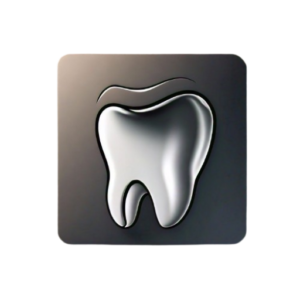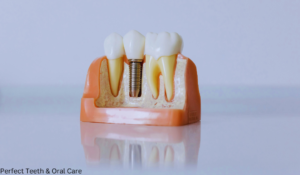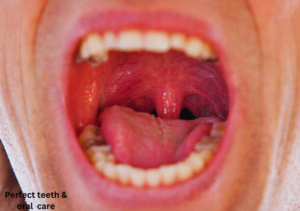Tooth pain can manifest in various ways, often causing significant discomfort that affects the quality of life. Many people are led to believe it’s possible to kill tooth pain nerves in 3 seconds permanently, but this is unfortunately a myth. While the idea of such immediate, permanent solutions is tempting, believing them can result in delays in proper treatment, potentially worsening the condition. Instead, let’s focus on quick, effective methods to realistically manage discomfort while seeking professional dental care.
When dealing with tooth pain, start by rinsing your mouth with warm salt water to reduce inflammation. Over-the-counter pain relievers or applying a cold compress to the affected area can also help soothe the pain temporarily. However, these methods only offer short-term relief. The key to addressing tooth pain effectively lies in consulting a dentist. A professional can diagnose the root cause and recommend treatments, such as filling cavities, performing a root canal, or addressing infections. Remember, addressing the issue promptly is essential for maintaining oral health and avoiding further complications.

What Causes Severe Tooth Pain?
Severe tooth pain can feel like a sharp jolt or a persistent ache, depending on its cause. When the pulp—the tooth’s living tissue—becomes irritated or damaged, the pain can spread through channels to nearby areas. Conditions such as dentinal sensitivity, caused by exposed dentin, or issues with damaged nerves, can worsen with exposure to triggers like hot, cold, or acidic foods.
According to the American Dental Association, untreated tooth decay, trauma, or extensive infections often leads to worsening pain that might require tailored treatments like a root canal. Making better food choices and addressing issues like worn enamel or recent fillings promptly is critical for preventing long-term complications.
Causes of Severe Tooth Pain
- Tooth decay or cavities exposing the sensitive inner layers.
- Infections like abscesses affecting the gums or the tooth’s nerves.
- Trauma, such as cracks or chips, leading to sensitivity or nerve damage.
- Receding gums exposing the dentin, causing heightened sensitivity.
- Worn enamel or fillings exposing the tooth’s sensitive areas.
- Irritation from hot or cold foods, beverages, or acidic and sugary items.
- Gum disease, such as periodontitis, affecting the surrounding enamel and tissues.
- Recent dental procedures like a filling, root canal, or use of whitening products.
What Does a Tooth Pain Nerve Feel Like?
Every individual can experience tooth pain differently, but some common sensations are widely recognized. For some, the pain feels excruciating, with a throbbing sensation that comes and goes in waves. This can make it feel almost unbearable, especially when triggered by various factors like biting down or temperature changes. Others describe a pounding sensation, almost like a heartbeat pulsing, which adds a persistent reminder of the distress.
In other cases, the pain might be a dull, constant ache that lingers, making it hard to concentrate or find a comfortable position to ease the discomfort. Sharp pain can also strike suddenly and fiercely, often without warning, leaving you breathless from its intensity. Sensitivity to hot or cold temperatures might result in a sudden jolt of pain when consuming hot or cold food and beverages. If accompanied by fever or swelling, this could indicate a possible infection that requires immediate attention. Understanding these sensations is crucial for identifying the source of the dental pain and determining the best course of action to find relief and prevent further complications.
Professional Dental Treatments for Nerve Pain
While home remedies and over-the-counter options offer temporary respite, professional dental treatments provide the most effective means to kill tooth pain nerve. Let’s explore your options for long-lasting pain relief. Professional dental care seeks to address the root cause of tooth nerve pain. Here are some restorative treatments that could offer you a sigh of relief:
- Fillings: Cavities, a significant cause of tooth pain, can be remedied by removing the decay and sealing the tooth. Dentists can prevent further damage and pain.
- Crowns: For teeth that are severely worn down or damaged, crowns act as protective caps. They can help preserve the tooth’s structure and shield the nerve from triggers that cause pain.
- Root Canal: Often deemed the definitive solution for a dying nerve, this treatment removes the affected nerve tissue, thus ending the pain permanently. After the procedure, the tooth is sealed and possibly crowned, which should prevent any future discomfort.
- Extractions: Sometimes, the only option for severely damaged or decayed teeth is tooth extraction. This is crucial in preventing further oral health complications.
Dental Nerve Desensitization Methods
If you’ve been battling severe tooth nerve pain, another avenue worth exploring lies in advanced dental nerve desensitization. This approach focuses on tackling sensitivity by calming the nerves within your teeth. By reducing their ability to react to pain triggers such as cold, heat, or sugary substances, it brings lasting relief without invasive procedures.
Methods of desensitization often start with topical applications like high-fluoride gels or varnishes applied by a dentist. These treatments strengthen your enamel and block the exposure of sensitive areas. For more persistent cases, laser therapy has emerged as a groundbreaking option. This technology directly modifies pain receptors in your teeth, offering relief that feels almost instantaneous. If you’ve ever felt that sharp jolt from ice cream or hot coffee, these solutions can be life-changing.
Realistic Expectations For Rapid Pain Relief
When a toothache strikes, finding fast relief becomes a priority, but it’s crucial to set realistic expectations. The pain caused by nerve issues within a tooth often requires intervention by a dental professional to resolve permanently. However, several methods provide temporary relief to ease the discomfort while you prepare for a visit to the dentist. Over-the-counter pain relievers, cold compresses, or rinsing with salt water can help, but they won’t eliminate the underlying issue.
Quick Remedies for Immediate Relief
Here are effective techniques for quick relief from tooth nerve pain, while waiting for professional dental treatment:
- Cold Compress: Use a cold pack or frozen peas wrapped in a towel and press it against your cheek for 15-20 minutes at a time. This helps reduce swelling and numb pain temporarily.
- Elevation: Keep your head elevated above your heart to lessen throbbing sensations by improving blood flow to the affected area.
- Saltwater Rinse: Mix a teaspoon of salt in a cup of warm water and swish it around your mouth to cleanse the area and provide short-term relief.
- Clove Oil: Apply clove oil, a natural antiseptic, gently to the affected area to numb pain. Be cautious and use it with care.
These temporary measures ease discomfort, but ensure you consult a dentist for a permanent solution.
Signs of Tooth Nerve Pain
- Sharp pain that feels like an electric shock in the affected tooth.
- Throbbing or persistent toothache that doesn’t go away.
- Increased sensitivity to temperature, especially with hot or cold foods or drinks.
- Discomfort when chewing food or biting down.
- Swelling around the affected tooth or nearby areas.
- Pain triggered by specific mouth activities, such as drinking, breathing, eating, or even brushing.
- Constant discomfort spreading to nearby teeth or areas in the mouth.
FAQs
How Do You Stop Nerve Pain in Your Tooth Quickly?
To manage nerve pain at home, you can take over-the-counter pain relievers or muscle relaxants. Additionally, remedies like applying thyme or clove oil are effective for relieving tooth nerve pain.
Does Salt Water Help with Nerve Pain?
Rinsing with salt water is a simple yet effective method to ease tooth pain at home. Mix warm water with a pinch of salt and swish it around your mouth for a few moments to experience relief.
What Relieves Toothache Pain Quickly?
Hydrogen peroxide rinses, fresh garlic, clove oil, peppermint tea, and cold compresses are some of the fastest remedies for alleviating toothache. You can also take over-the-counter painkillers for immediate relief.
How Can You Numb Tooth Nerve Pain at Home?
A cold compress or gently rubbing ice on the affected area can help numb the tooth nerve. This method is effective for reducing pain and soothing swollen gums.


